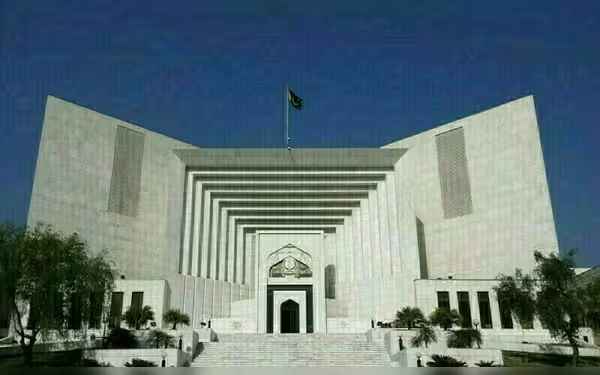Friday, October 4, 2024 10:29 AM
Supreme Court Overturns LHC Order on Election Tribunals
- SC nullifies LHC's authority on election tribunal appointments.
- ECP and LHC collaborate for timely tribunal establishment.
- Judicial and electoral bodies urged to ensure fair elections.
 Image Credits: dawn
Image Credits: dawnSupreme Court of Pakistan sets aside LHC order on election tribunals, emphasizing collaboration between ECP and judiciary for fair elections.
The recent decision by the Supreme Court (SC) of Pakistan has significant implications for the electoral process in the country. On Monday, the SC accepted the plea of the Election Commission of Pakistan (ECP) and set aside the Lahore High Court’s (LHC) order regarding the appointment of election tribunals. This ruling comes in the wake of a June 12 verdict from the LHC, which had asserted that the chief justice of the high court held the primary authority in appointing these tribunals under the Elections Act of 2017.
The core issue at hand was the question of who holds the ultimate power in the appointment of election tribunals: the ECP or the LHC. The ECP had appealed to the SC, arguing that the LHC's ruling undermined its authority. During the hearing on July 4, the apex court had already suspended the LHC’s notification that established eight election tribunals in Punjab, emphasizing the need for a collaborative approach between the LHC and the ECP.
In a recent development, the SC noted that a meeting had taken place between LHC Chief Justice Aalia Neelum and Chief Election Commissioner Sikandar Sultan Raja. The outcome of this meeting was described as “amicably resolved,” with an adequate number of election tribunals set to be appointed promptly. Chief Justice of Pakistan Qazi Faez Isa expressed optimism that the ECP would conduct itself in a manner that inspires confidence during these discussions.
The Supreme Court's ruling not only nullifies the LHC's June 12 decision but also highlights the importance of cooperation between judicial and electoral bodies in Pakistan. The court commended both officials for recognizing their constitutional responsibilities and taking the necessary steps to resolve the matter effectively.
As the political landscape in Pakistan continues to evolve, this ruling serves as a reminder of the delicate balance of power between different institutions. It underscores the necessity for clear communication and collaboration to ensure that the electoral process remains fair and transparent. Moving forward, it will be crucial for both the ECP and the judiciary to work together to uphold the integrity of elections, which are the cornerstone of democracy in Pakistan.













